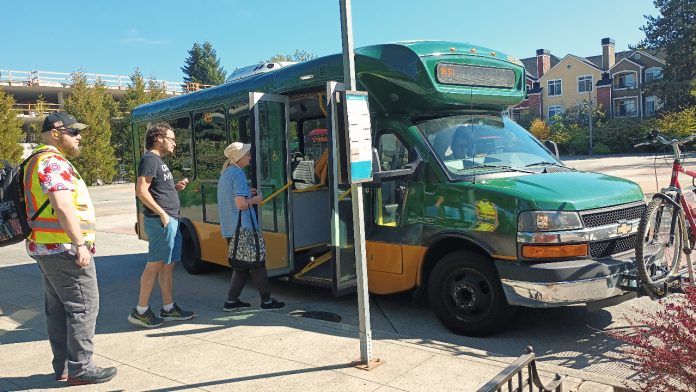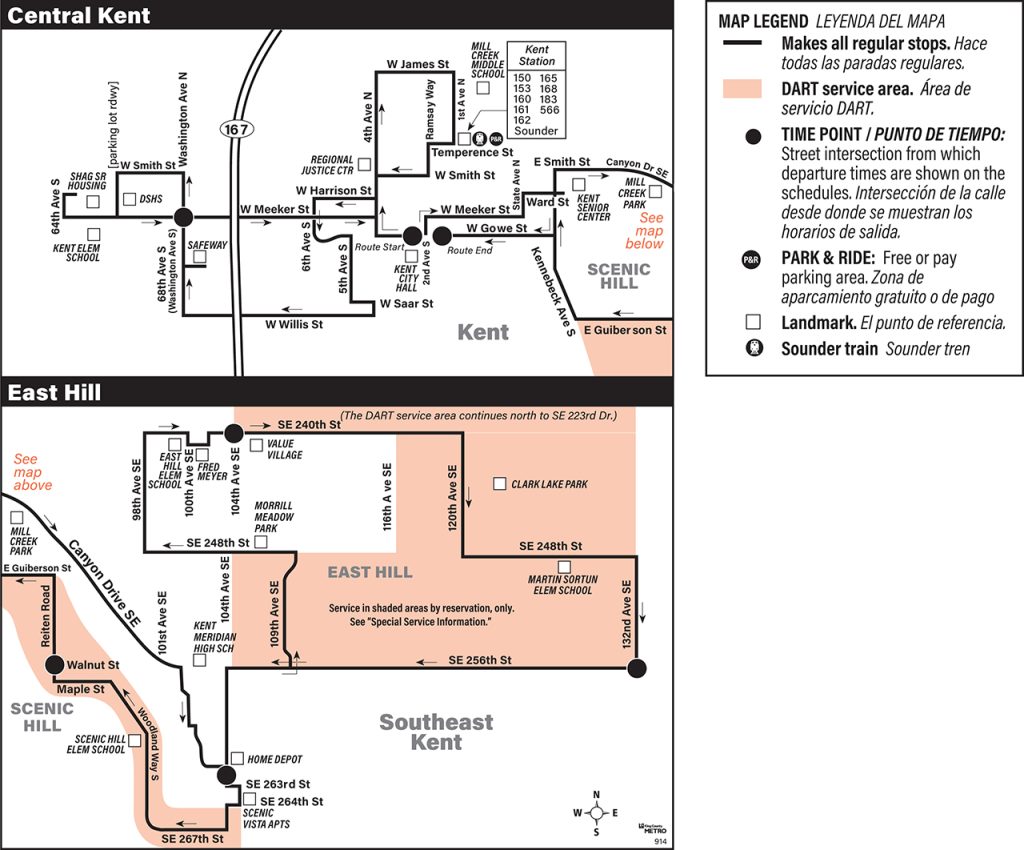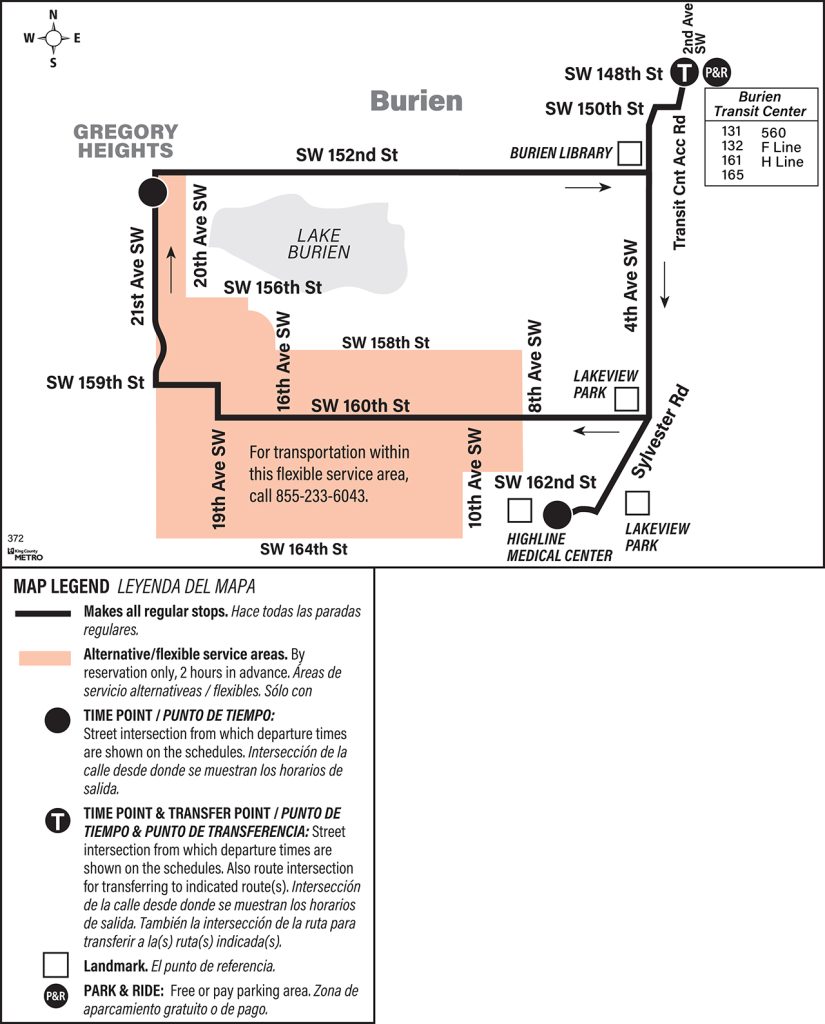
King County Metro’s third-party contractor, Hopelink, has seen its staffing levels increase, and that’s set to translate to more options for transit riders in South King County. With extra driver availability, Hopelink is able to provide more service, allowing Metro to restore some weekday trips to van routes in Burien and Kent.
Route 914, which is partially fixed-route and operates in a loop through Downtown Kent and East Hill, saw the restoration of five weekday trips this past Monday, January 22. Service is running about every 30 minutes from 9:00am and 4:30pm. New trips added to the schedule are around 10:00am, 11:30am, 1:00pm, 2:30pm, and 4:05pm. Riders in portions of East Hill and Scenic Hill can reserve trips in advance for doorside service within the designated flexible service area.
Next month, Route 631 operating in Burien and Highline will see earlier morning and later evening service with the addition of 11 trips. The route operates partially as fixed-route with a flexible service southwest of Lake Burien. The new span of service will run from 6:30am to 7:45pm on weekdays. Extra trips will depart from the Burien Transit Center at 6:27am, 6:57am, 7:27am, 7:57am, 8:27am, 5:12pm, 5:42, 6:12pm, 6:42pm, 7:12pm, and 7:42pm, giving 30-minute frequency in the mornings and evenings. New trips will go into effect on Monday, February 5.
While these service improvements are certainly a welcome change, Metro still has a long way to go in restoring fixed-route bus service throughout the county. Staffing shortages persist for hundreds of operator and maintainer positions, leaving the overall transit network a shell of its former self. Metro reached its height immediately prior to the pandemic. Improved hiring practices and better pay may help begin to close the gap, but time will tell. The coming weeks will reveal what riders should expect with the next major service change that will take effect in mid-March.
Stephen is a professional urban planner in Puget Sound with a passion for sustainable, livable, and diverse cities. He is especially interested in how policies, regulations, and programs can promote positive outcomes for communities. With stints in great cities like Bellingham and Cork, Stephen currently lives in Seattle. He primarily covers land use and transportation issues and has been with The Urbanist since 2014.




